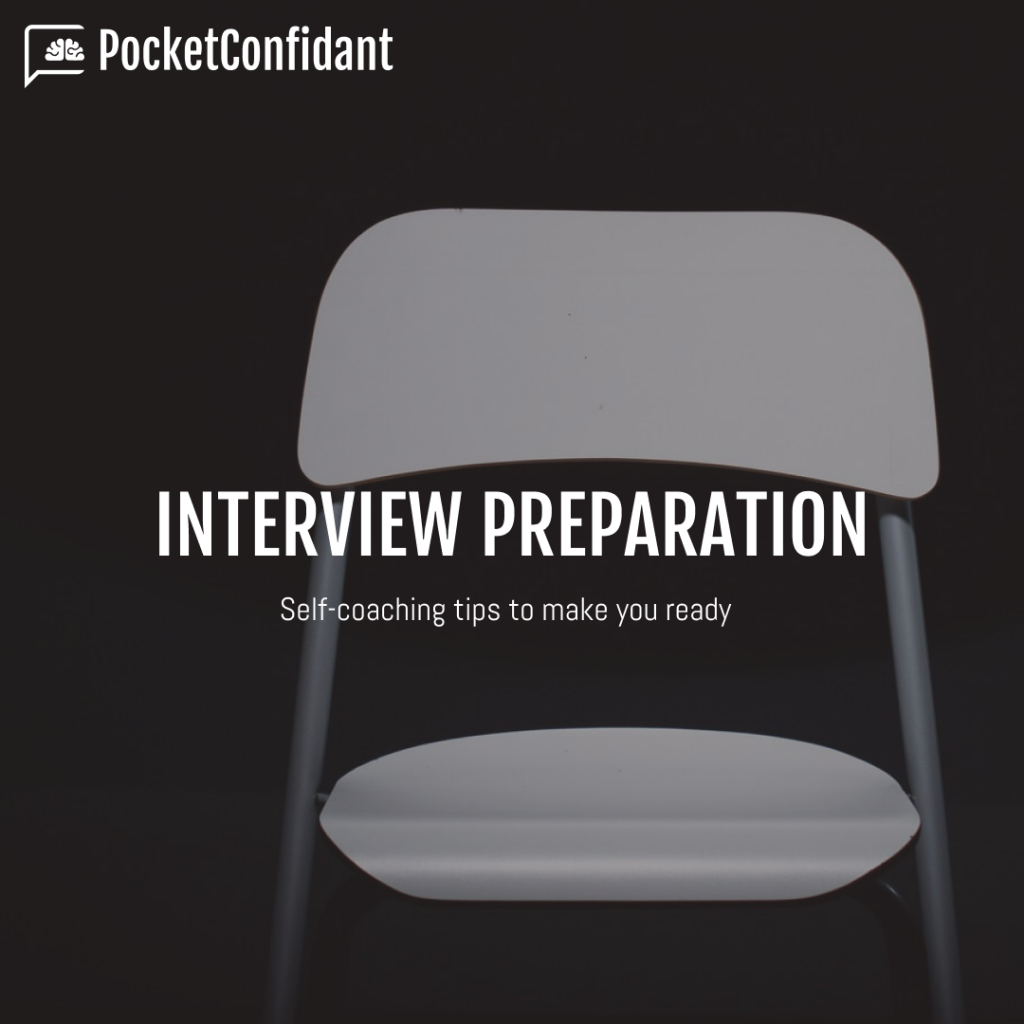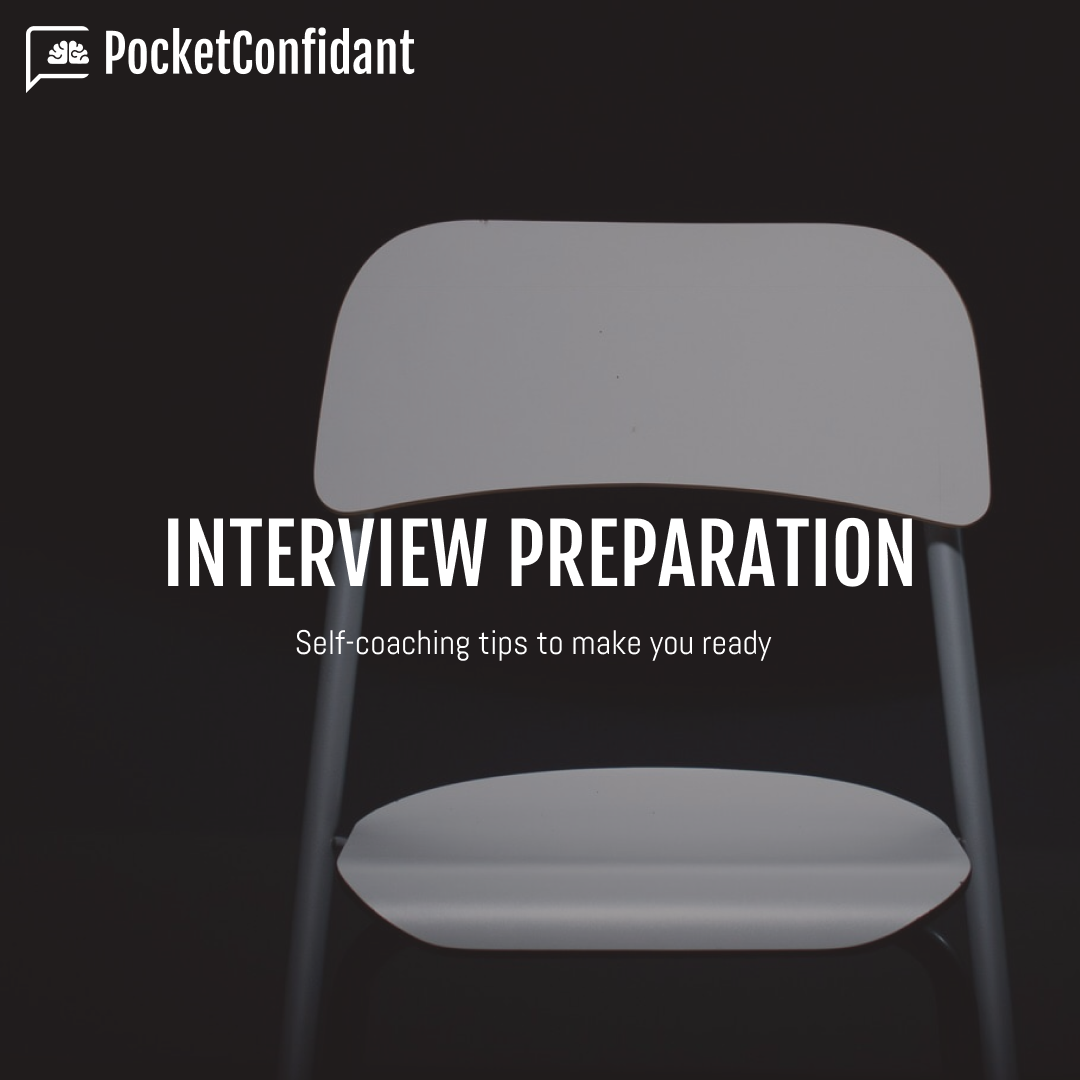
This article is about studying remotely and developing our autonomy to be successful and is part of a series of articles and resources on the subject of the academic journey, where you can go back to look at the different academic challenges and access other articles.
A note from a coach
What’s an interview?
Whether it is for admission into an academic/university/school or for a job, one thing is the same: the interviewers want to know you and assess whether you are a good fit or not.Then things can differ somewhat based on the following elements:
- Is it for a public school, with high or lower standards, reputation or demand?
- Is it for a private school, with similar nuances as above?
- Is it for a job in a prestigious company; a large company, a small company or a startup?
- Is it for an entry level, a middle level or a more senior position?
- Is it for a niche industry with key expertise (ex: biology, or a specific health domain) or is it for a transversal or more generalist type of job (ex: accountant, marketer, sales person)?
Based on the above contexts, the admission and assessment process can be more or less complex where interviewers can have with different expectations and personalities. The starting points for each interview always encompass the following key elements to keep in mind and work on/practice/rehearse for yourself:
- Where do I come from, what’s my personal and professional background?
- Where do I want to go, what do I want to do or learn or change and why?
- What are my values and conviction, what identity do I choose to embody, who am I?
- What awareness do I have of my strengths and weaknesses and how to I explain them?
- Why am I a good profile for the role I’m applying for, what logic or argument do I have?
- What do I want to offer, where do I see my contribution being relevant?
It is important to understand that your story and the way you want to tell it matters a lot. There is no right or wrong story as long as it makes sense a) for you and b) for the assessor. First, does your story enable you to talk with confidence and clarity about who you are, what you want, what you know or don’t know and what you want to learn? Or, does your story contain holes, makes you feel unsure of yourself and unable to present yourself successfully? You do NOT need to have a “big story”, or the best exam scores in the world.
What is the purpose of the interview and what are the expectations of the interviewer? Are interviewers looking for candidates who have experienced successes and failures and have proved their ability to bounce back and change paths, or, are they looking for a top ranked profile in one specific area? You can know these elements before your interview and decide whether you want to go or not, hence prepare accordingly. There is no magic. KNOW YOURSELF is the single most important preparation for an interview. No matter who you are and what you know or have achieved, you need to spend time knowing yourself and telling your story.
What are the interviewers looking for? Who are they (academics, professionals, seasoned executives, researchers)? Where are you applying, what are the standards around your organization? There are many elements that you can easily know. Doing your research alongside knowing yourself will always give you the means to be prepared and grounded. Then, being able to frankly talk to what you do and don’t know is a positive way to address any challenges the interviewers may bring. Nobody knows everything on earth, and if you are expected to know everything, then make your choice before going to the interview.
Then, knowing clearly enough about yourself in a few words to explain what are your goals or if you don’t have one what you are figuring out and want to learn, as well as what are your values, convictions, and what makes you a “good contribution” are real assets (ex: my #1 value is listening, because I can solve problems by understanding where others come from and want to go; or my #1 conviction is focus and self-motivation because I love to work alone on tough challenges; or I choose X type of training or job because I’m dreaming about becoming Y since I’m a kid, and while I have studied ABC, today I have changed everything to dedicate my time to what feels right for me; the key element with me is my family background who exposed me to X activities since I was born so I have it in my blood; what make me unique is last years’ experience doing X and Y, that are so specific to your training or job requirements, that I can truly add value because nobody knows what I know; or I’m a great fit because my passion and my creativity will make me a unique speaker; or my ability to listen and follow requirements are so unshakable that I have built the best analytical and reporting skills…).
Not matter where you apply. Your #1 goal is to spend time questioning yourself. Doing this work will bring you value for any kind of interview around the world, even in different languages. If you know yourself deeply and confidently, your body will speak for yourself.
Finally, there can also be very specific things that each interview process bring that require another layer of preparation:
- If you apply for a very demanded school, or training, or job application (ex: UX design): you will need to either have great experiences, or a way to tell your story that will create a very noticeable difference in the interviewer’s mind;
- If you apply for a very niche training or job, make sure that you spend time doing your research and articulate what you know AND what you do not know correctly and honestly;
- If you apply for a not so-demanded opportunity, do your job: make sure what you tell is aligned to the area, to your story, your background or make sure you have well-founded arguments to explain things with clarity and confidence.
What are the insights to always keep in mind for any interview:
- It’s not about quantity of elements, it’s about quality and clarity;
- Being confident, knowing your words because you tell them with your body and not only your mind and with a good tone, is 10x more inspiring than a shaking body (if you shake or lack confidence, you should already know it and you should be able to anticipate this and train yourself or go into coaching to identify how to change this);
- It’s about making your story relevant, you don’t need to oversell or undermine yourself.
Remember: interviewers need to get to know you. Spend time knowing yourself first, then show them who you are without filters. This increases natural, power and trust. Everything that is faked or not relevant is being felt right away and puts you in stressful positions.
If you want to prepare for an interview, you can train yourself with our self-coaching technology available here anytime on a free version. Additionally, with paid options, you can find relevant tips, videos or podcasts and human coaching sessions here to address more specific topics, issues and contexts.
Here is some feedback about our technology and services on the use case of preparing interviews:
- My interview went right, I think that recruiters have felt my motivation. In September, I would do a diploma in Digital Marketing and Data analytics. (Robin)
- Rating 5/5. Thank you so much for your answers. (Cecile)
- I can see that with the questions I started to ask myself deeper about things, and like that I analyze my situation better, I think that now I am more calm and really have started practicing speaking about myself and trying to express myself better, thinking of my real values. Thank you very much for helping. (Vasilena)
- I rate 7/10 on the link between my success in the interview and the coaching with PocketConfidant as it helped me support an important preparation. (Ines)
- I wanted to thank you again for your help and the video for the interview preparation. I encourage you to continue what you do, it’s clear and very efficient! (Aurelie)
From this blog post you can get started on your self-coaching journey, and you can get further coaching or mentoring with options.
To read about other challenges that students, graduates and young professional face and get some tips, visit the different topics here and check again regularly to follow the topics and stories we add from time to time.
here.
If you want more information feel free to contact us.
